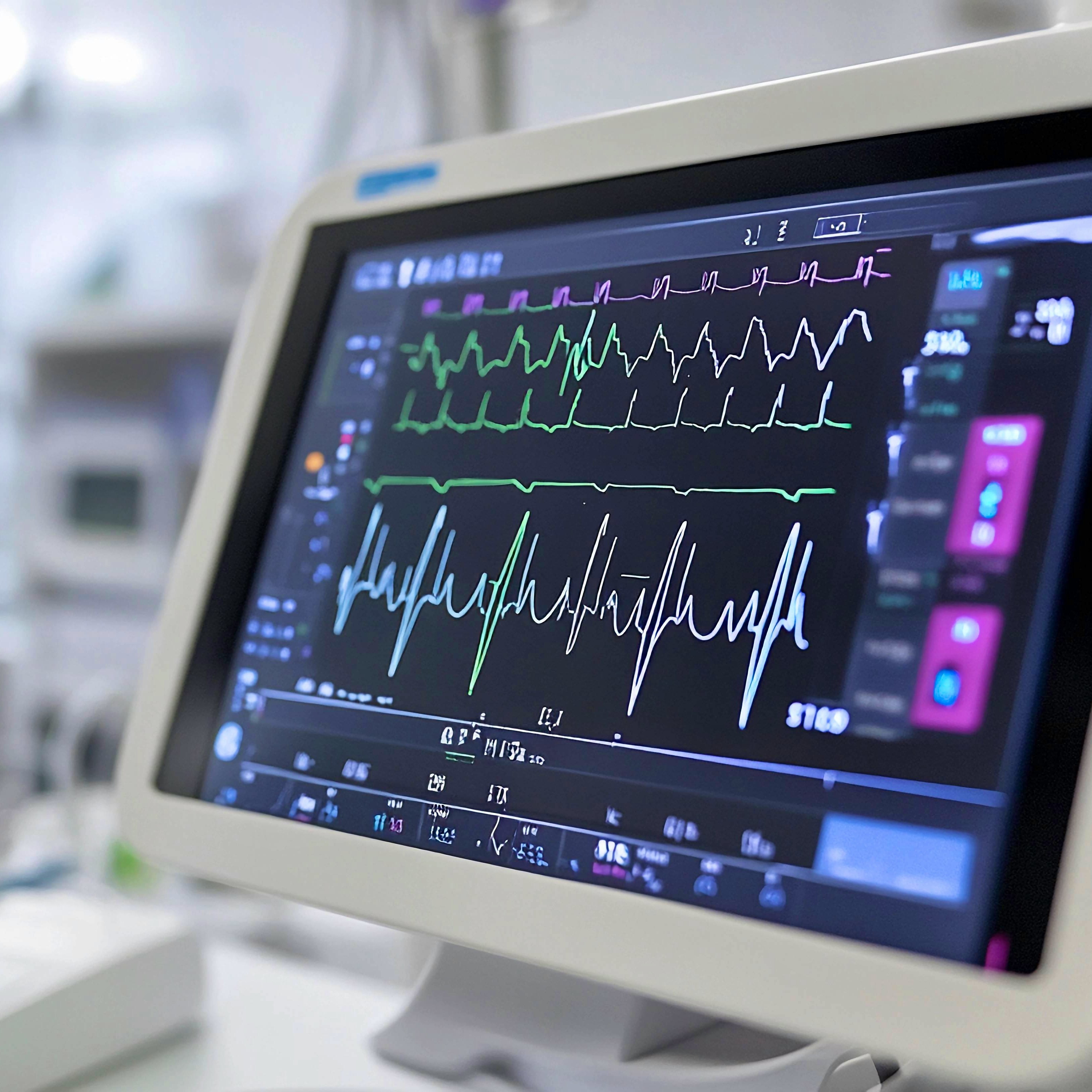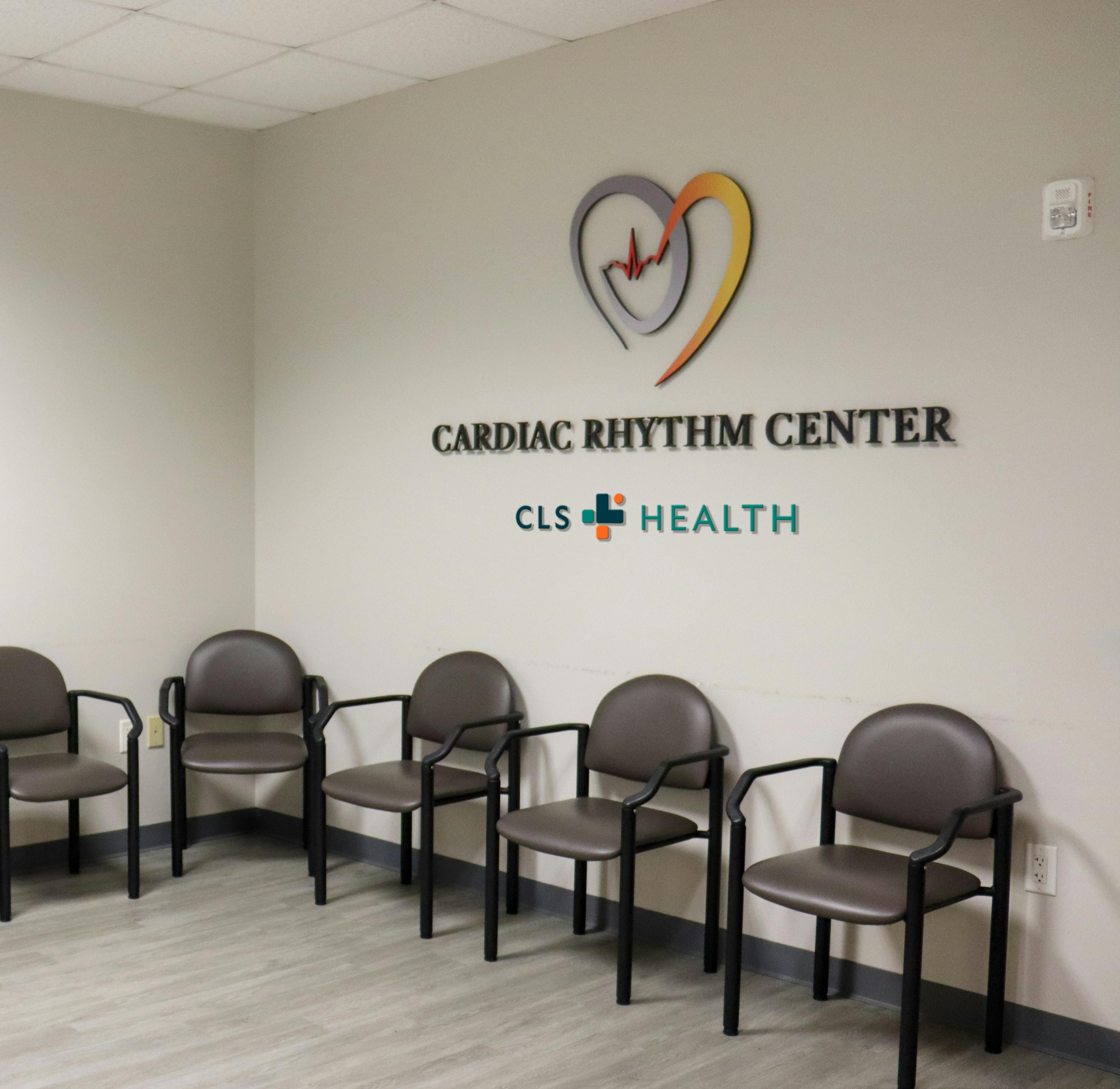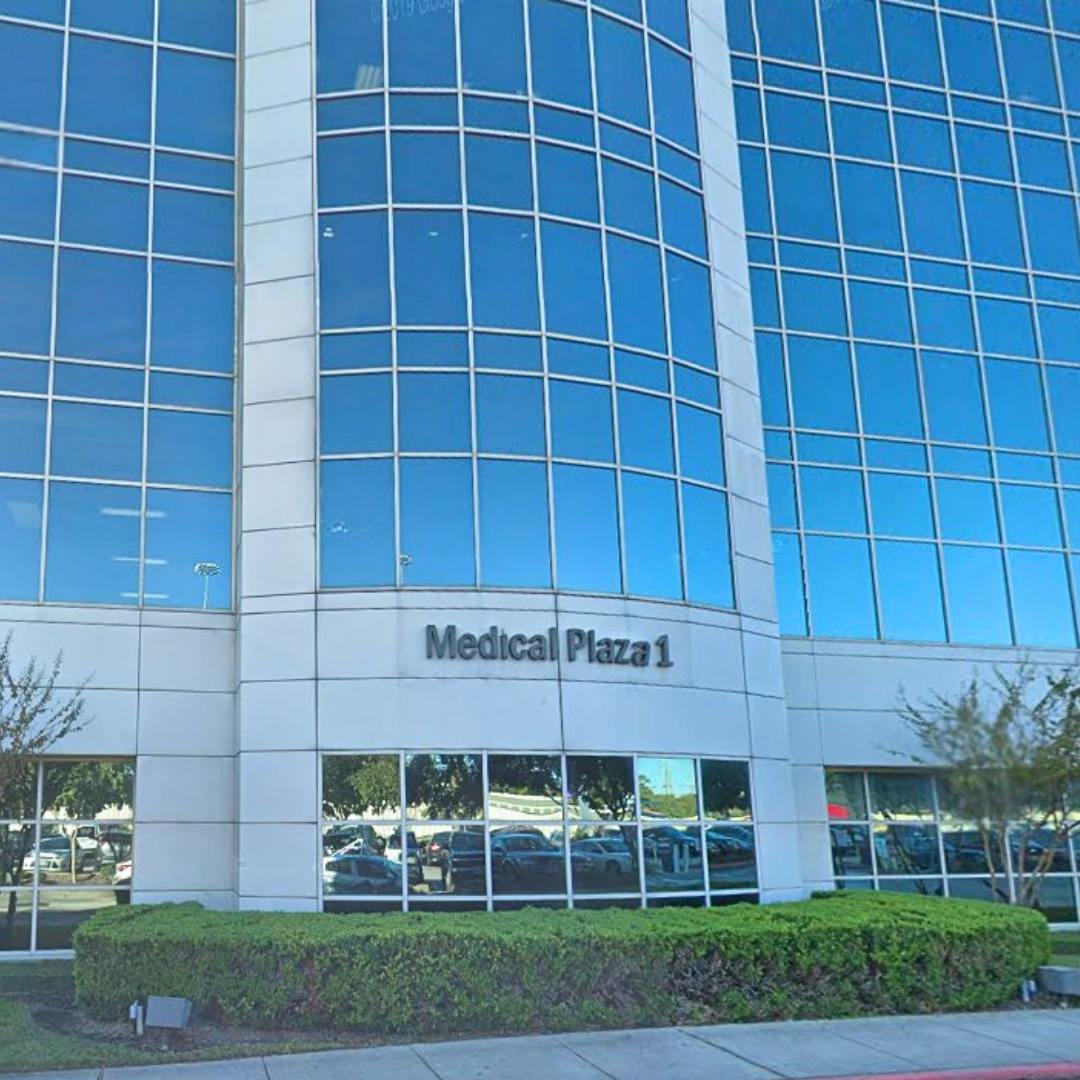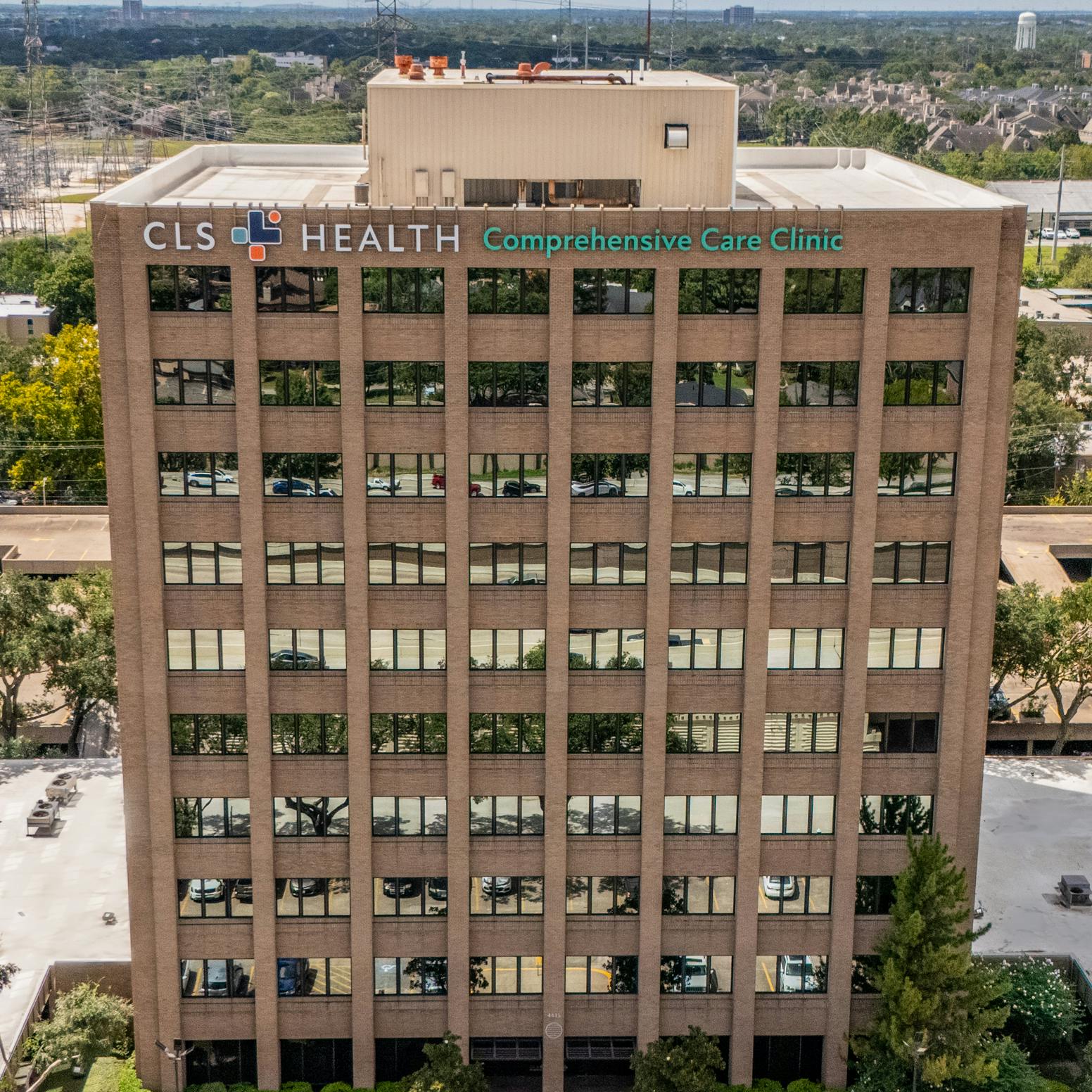Electrophysiology

Houston’s Trusted Heart Rhythm Specialists
CLS Health electrophysiologists bring advanced expertise and a personal, patient-first approach to every visit. Electrophysiology, a subspecialty of cardiology, focuses on diagnosing and treating irregular heart rhythms such as atrial fibrillation (AFib), bradycardia, and supraventricular tachycardia (SVT).
Our board-certified electrophysiologists care for patients experiencing palpitations, dizziness, fainting, or irregular heartbeats. Whether you’re considering alternatives to long-term blood thinners—such as the Watchman™ device—or seeking advanced treatments like Pulse Field Ablation (PFA) for AFib, our team guides you through each step with clarity and support.
With dedicated heart rhythm clinics across Greater Houston, we provide comprehensive evaluation and management of simple and complex arrhythmias, while working closely with general cardiologists to support all aspects of your heart health. Known for their thorough, compassionate care, our specialists are consistently rated among the top in patient satisfaction.
When should I see an electrophysiologist?
Your doctor may also refer you to an electrophysiologist if tests reveal an abnormal heart rhythm or if you have a condition like atrial fibrillation, supraventricular tachycardia, or ventricular arrhythmia. An electrophysiologist is the right specialist to determine if you could benefit from treatments like catheter ablation, a pacemaker, or an implantable defibrillator.
Our team is here to provide answers and advanced care tailored to your needs. If you're unsure, a consultation can help you understand your heart health and take the right next step.
We welcome self-referred patients and referrals from all specialties, including neurologists for loop recorders following a cryptogenic stroke. Second opinions are also welcome.
Providers

Electrophysiology

Electrophysiology

Francia Rojas
MD
Electrophysiology
Conditions Treated
At CLS Health, our electrophysiology team specializes in diagnosing and treating heart rhythm disorders that affect how fast or how regularly your heart beats. We combine advanced testing, minimally invasive procedures, and personalized medical care to help restore a safe, steady rhythm and improve your long-term heart health.
We treat rhythm disorders that cause the heart to beat too quickly, including atrial fibrillation, atrial flutter, supraventricular tachycardia (SVT), ventricular tachycardia, and Wolff-Parkinson-White (WPW) syndrome. These conditions may cause palpitations, shortness of breath, dizziness, or fatigue and can increase the risk of stroke or cardiac complications. Our goal is to identify the origin of the abnormal rhythm and provide targeted therapy to restore control and reduce symptoms.
Slow heart rhythms, such as bradycardia and heart block, can cause fatigue, dizziness, fainting, or intolerance to exercise. These conditions occur when the heart’s electrical system cannot maintain an adequate heart rate to supply the body with oxygen-rich blood. We perform thorough evaluation and monitoring to determine the cause and develop a plan that may include medication adjustments or pacemaker therapy to keep your heart beating safely and consistently.
Diagnostic Testing
Our electrophysiology team uses advanced diagnostic tools to understand how your heart’s electrical system functions. These tests help us pinpoint the cause of palpitations, dizziness, fainting, or irregular heartbeats so we can create an accurate and personalized treatment plan.
We use rhythm-monitoring tests to capture your heartbeat in real time and over extended periods, which helps us evaluate palpitations, skipped beats, or unexplained symptoms. Electrocardiograms (ECG/EKG), Holter monitors, and wearable event recorders track your heart’s electrical activity to identify abnormal rhythms that may not appear during a brief office visit.
Some symptoms — especially dizziness or fainting — may be related to changes in posture, blood pressure, or nervous system responses. A tilt table test allows us to assess how your heart rhythm and blood pressure react when you move from lying down to standing, helping us determine whether these changes are causing your symptoms.
When we need to pinpoint the precise source of an arrhythmia, we may recommend an electrophysiology (EP) study. This minimally invasive test maps the electrical signals inside the heart and identifies abnormal circuits that may be triggering rapid, slow, or irregular rhythms. It provides the most accurate information for planning catheter-based treatments.
Imaging helps us evaluate the heart’s chambers, valves, and blood vessels to identify structural problems that may contribute to abnormal rhythms. Echocardiography, cardiac MRI, and CT angiography give detailed views of the heart so we can detect underlying conditions and tailor your care accordingly.
Electrophysiology Procedures
Our electrophysiologists perform advanced, minimally invasive procedures to diagnose, treat, and manage heart rhythm disorders. These techniques allow us to pinpoint abnormal electrical signals, correct arrhythmias, and support long-term heart function with precision and safety.
We use specialized procedures to identify the exact source of abnormal heartbeats. An electrophysiology (EP) study and 3D electroanatomic mapping allow us to trace your heart’s electrical pathways in detail, helping us determine the cause of fast, slow, or irregular rhythms with a high level of accuracy. This information guides targeted treatment plans tailored to your specific condition.
For fast or irregular rhythms, we perform catheter-based treatments designed to correct the electrical source of the problem. Catheter ablation — including advanced options like Pulse Field Ablation (PFA) — offers a safe, minimally invasive way to treat atrial fibrillation and other arrhythmias. We may also use cardiac resynchronization therapy (CRT) to help the heart beat more efficiently in patients with certain rhythm and pumping abnormalities.
When rhythm issues require long-term control or monitoring, we offer implanted devices that stabilize the heartbeat and protect against dangerous arrhythmias. Pacemakers help regulate slow heart rhythms, while implantable cardioverter-defibrillators (ICDs) prevent life-threatening rhythm disturbances. We also implant loop recorders for continuous rhythm monitoring and provide ongoing device checks and remote monitoring for your safety and peace of mind.
For patients with atrial fibrillation who cannot take long-term blood thinners, we offer the Watchman™ device as an effective stroke-prevention option. This minimally invasive implant closes the left atrial appendage — the area where blood clots often form — reducing stroke risk without the need for chronic anticoagulation. It provides a safe, lasting alternative for many AFib patients.
Clinical Research
We participate in national and international clinical trials to bring the latest technology and treatment options to our patients. These trials help us offer early access to promising therapies and shape the future of electrophysiology.
Professional Leadership
Our electrophysiology team trains physicians and industry professionals nationwide. Trainees frequently visit our clinic to observe cutting-edge workflows in pacemaker and ablation procedures.
Why Patients Choose CLS Health
- Among the highest-volume PFA ablation providers in the country
- Watchman™ device experts for stroke prevention
- Trusted by referring physicians across Texas
- Self-referrals and second opinions welcome
- Active in clinical trials and training programs
- Multilingual care, including English and Spanish
Don't see your insurance listed? We may still accept it! CLS Health updates accepted insurance plans regularly. Please call (281) 724-1860 to verify your coverage.
- Aetna Select
- Open Access Selects
- Elect Choice
- Aetna Open Access Elect Choice
- Aetna Choice POS II
- Managed Choice
- Open Choice PPO
- Aetna Medicare Advantage Plans
CLS Health does not accept:
- Aetna CVS Marketplace Plans
* Some providers may not accept this insurance, please call to confirm
- Superior Ambetter Core (Complete, Clear, Focused, Standard Silver and Gold)
- Superior Ambetter Value (Clear Value Silver, Focused Value Silver, CMS Standard Silver & Gold Value, Everyday Value Gold)
- Superior Ambetter Virtual (Ambetter Virtual Access Silver, CMS Standard Virtual Access Basic Silver, Ambetter Virtual Access Gold)
- Superior Health Plan CHIP*
- Superior Health Plan MAPD (Medicare Advantage Prescription Drug)
- Superior Health Plan Medicare
- Superior Health Plan MMP Medicaid*
- Superior Health Plan MMP Medicare
- Superior Health Plan STAR*
- Superior Health Plan STAR Kids*
- Superior Health Plan STAR+PLUS*
CLS Health participates in most Blue Cross Blue Shield plans including:
- Blue Choice PPO
- Blue Essentials
- Blue Essentials Access
- HealthSelect
- HealthSelect of Texas In Area
- Consumer Directed HealthSelect in Area
- HealthSelect of Texas Out of State
- Consumer Directed Health Select Out of State
- HealthSelect Secondary 65+
- Medicare Advantage HMO
- Medicare Advantage PPO
- Medicare Advantage Value HMO
- POS
- Traditional/Par Plan
- TRS-Active Care
- TRS-Care Standard
- BCBS MyBlue Health (Marketplace)
*Some providers may not accept Community Health Choice, please call to confirm
- MarketplacePremier
- Medicaid*CHIPCHIP PerinateSTAR
- Medicare AdvantageDual-Special Needs Plan (D-SNP)
- ChoiceCare PPO
- EPO
- HMO
- HMO Premier
- Medicare Advantage Plans
- HumanaChoice - Medicare Advantage PPO plan
- Humana Gold Choice - Medicare Advantage Private Fee-for-Service (PFFS) plan
- Human Gold Plus - Medicare Advantage HMO & Special Needs Plan
- Military (TRICARE South Region Military Health Plan)
- POS - including Choice POS, National POS Open Access/Plus and Preferred POS Open Access.
- PPO
*Some providers may not accept United Healthcare, please call to confirm
- Commercial, HMO, POS, EPO and PPO Plans (Charter, Choice,Core, Doctors Plan, Freedon, Heritage, Navigate, Nexus ACO, Options PPO, Passport Connect, Select)
- Indemnity
- Medicare Advantage (AARP, Care Improvement Plus, C-SNP, D-SNP, I-SNP, Erickson Advantage, ERS Medicare Advantage, TRS-Care Medicare Advantage, UnitedHealthcare Chronic Complete, UnitedHealthcare Connected (Medicare-Medicaid Plan), UnitedHealthcare Dual Complete, UnitedHealthcare Group Medicare Advantage PPO, United Healthcare Medicare Complete)
- Community Plans* (CHIP, CHIP Perinate, Star, Star Kids, Star Plus, MMP)
- Wellmed (Wellmed Dual SNP Focus, Wellmed Medicare Advantage Focus)
*Some providers may not accept Wellpoint, please call to confirm
- Medicaid (All Texas Plans Including the Below)*
- CHIP
- CHIP Perinate
- STAR
- STAR+PLUS
- STAR Kids
- Medicare Advantage
- C-SNP
- D-SNP
- I-SNP
- Medicare Advantage HMO
- Medicare-Medicaid (MMP)
- Medicare-Medicaid Program (MMP)
- STAR+PLUS MMP
*Some providers may not accept insurance, please call to confirm
PPO Networks
- Beechstreet PPO
- Carnival Cruise Lines PPO
- Envolve Benefit Options Vision-PPO, HMO
- First Health
- Curative/First Health
- Galaxy Health Network
- HealthSmart Preferred Care
- Accel
- Healthsmart Payors Organization
- Multiplan PPO
- Tricare (Humana) PPO/Prime
Employer-Specific Plans
- Brazoria County Employees – Aetna TPA Brazoria County Employees
Workers’ Compensation Plans
- Workers’ Comp
- Auto & Workers’ Comp
Medicare and Medicare Advantage
- Medicare Traditional
- Medicare Advantage
- Memorial Hermann Health Solutions Commercial and Medicare
- Molina Medicare Complete Care HMO SNP
- Medicare-Medicaid Program (MMP)
- STAR+PLUS MMP
- Alignment Health Plan
- AllyAlign Health
- American Health Plans
- Florida Complete Care
- Gold Kidney Health Plan
- Imperial Health
- Independent Health
- Kaiser Foundation Health Plan of Washington
- Kaiser Foundation Health Plan of Colorado
- Mass Advantage
- Presbyterian Health Plan
- PriorityHealth
- Provider Partners
- SCAN
- UCare
- Vantage Health Plan
- Verda Healthcare
- Zing Health
Medicaid and CHIP Programs
- Molina Healthcare* (Marketplace, Medicaid, CHIP, CHIP Perinate, STAR, STAR Kids, STAR+PLUS)
- Texas Children's Health Plans*
- TMHP (Traditional Medicaid) Traditional Medicaid
Specialty Plans
- VA Community Cares Network CCN
FAQs
Recognizing heart attack symptoms early is crucial. Common signs include chest pain or discomfort (pressure, squeezing, or fullness), shortness of breath, upper body pain (arms, back, neck, jaw, or stomach), nausea or vomiting, cold sweats, and dizziness. If you or someone else experiences these symptoms, seek immediate emergency medical attention.
Atrial Fibrillation (AFib) is an irregular heart rhythm that increases stroke risk. Treatment options include medications to control heart rate and prevent blood clots, cardioversion to reset the heart's rhythm, and catheter ablation to destroy abnormal heart tissue. Lifestyle changes, such as stress management and maintaining a healthy weight are also important. In some cases, a pacemaker may be implanted. Early diagnosis and treatment of AFib can prevent complications.
Pacemakers are used for conditions that cause the heart to beat too slowly, irregularly, or with dangerous pauses. They help regulate rhythm, maintain steady blood flow, and reduce symptoms like fatigue, dizziness, or fainting.
Heart Conditions That May Require a Pacemaker:
- Bradycardia – when the heart beats too slowly.
- Heart block (AV block) – when electrical signals between the upper and lower chambers of the heart are delayed or blocked.
- Sick sinus syndrome – when the heart’s natural pacemaker (sinus node) doesn’t work properly, causing alternating slow and fast rhythms.
- Atrial fibrillation with slow ventricular response – when AFib causes the lower chambers of the heart to beat too slowly.
- Congenital heart disease – some people are born with electrical system abnormalities that require pacing support.
- Post–heart surgery or heart attack rhythm problems – when the heart’s electrical system is damaged and doesn’t recover.
Recent advancements in heart disease treatment include minimally invasive procedures like TAVR, advanced imaging technologies for earlier diagnosis, wearable health devices for real-time monitoring, personalized medicine, regenerative therapies, robotic surgery, and expanded access through telemedicine.
CLS Health accepts Medicare, Medicaid, and most major health insurance plans. Schedule an appointment with our experienced cardiologists to receive comprehensive heart care covered by your insurance.






